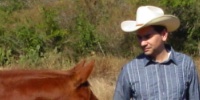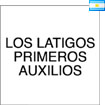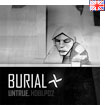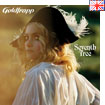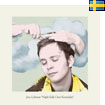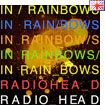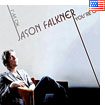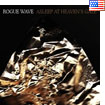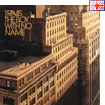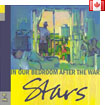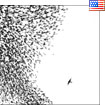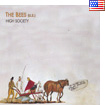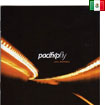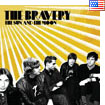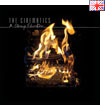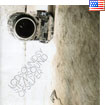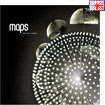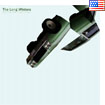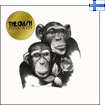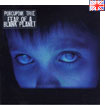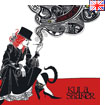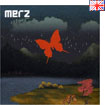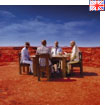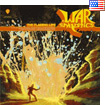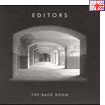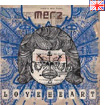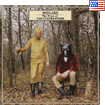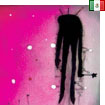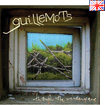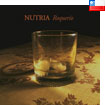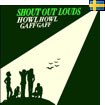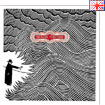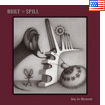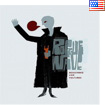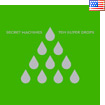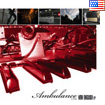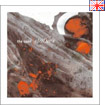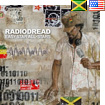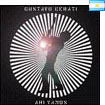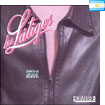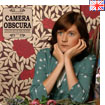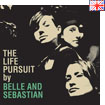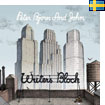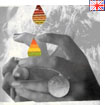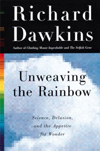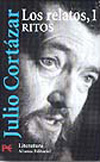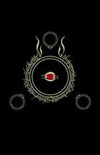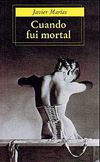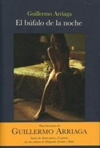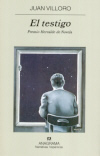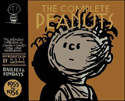Thursday, January 29, 2009
Nuevas Historias de Cronopios y de Famas
Cuando me marché de España envié por correo varias cajas a los Estdos Unidos, algunas de las cuales se perdieron. En una de ellas había una caja más pequeña que contenía las obras completas de Mozart en 170 CDs. Lamentando mi pérdida, la semana pasada me compré la caja de nuevo. El domingo por la noche vi la caja por ahí, y decidí que era tan buen momento como cualquier otro para en realidad comenzar a escuchar los discos. Elegí comenzar con la sección que cubría las piezas de conjuntos de cuerdas, un total de 13 discos más o menos a mediación de la caja. El primer disco de esa colección tenía dos quintetos de cuerdas. El lunes por la noche, saqué el siguiente disco, con otros dos. El martes por la noche, el siguiente, con otros dos. Esa misma noche, mientras reproducía ese disco, leía un artículo en "El País" donde mencionan que una nueva edición de "Historias de Cronopios y Famas", un libro determinante en mi vida personal y profesional cuando recién salía de la universidad, iba a salir con tres cuentos adicionales nunca antes publicados. En una parte de la nota mencionaban que poco antes de morir hace 25 años en un hospital parisino, Cortázar pidió escuchar el último quinteto de cuerdas de Mozart. (Luego pidió escuchar una pieza de jazz, pero eso es irrelevante para esta historia.) Con curiosidad acerca de la pieza, fui a la caja, suponiendo que sería el último CD del sub-conjunto que estaba escuchado ahora. Repasando el índice, me di cuenta que los últimos 7 CDs eran cuartetos, y sólo los primeros tres discos eran quintentos. Así que investigué un poco acerca del último quinteto, y era el "Quinteto para Cuerdas No. 6 en Mi-bemol, K. 614", que de acuerdo a Wikipedia, fue terminado el 12 de abril de 1791 (y yo, por supuesto, no pude evitar observar que yo nací el 12 de abril de 1971.) En mi colección, era las pistas 6 a 9 del tercer disco de conjuntos de cuerda... el que estaba ahora mismo girando en el reproductor. Fui a ver qué pista se escuchaba ahora mismo y, sí, era la pista 6. ¡Sentirse de algún modo en sincronía con dos de los más grandes genios de la historia en sus respectivos géneros no ocurre todos los días! | When I moved away from Spain I shipped several boxes to the US, several of which got lost. In one of them there was a smaller box that contained the complete works of Mozart on 170 CDs. Grieving my loss, last week I purchased another copy. On Sunday night, I saw it lying around, and decided to actually start listening to it. I chose to start off with the String Ensemble section of the box, a total of 13 discs somewhere in the middle of the collection. The first disc of that set had two string quintets. On Monday night, I pulled out the next disc, with another two. On Tuesday night, the next one, with another two. That same evening, as it was playing, I was reading an article in "El País" where they mentioned a new edition of Julio Cortázar's "Cronopios and Famas", a book that was pivotal for me in my early 20's both personally and professionally, was going to be released with three never-before-published short stories. As I was reading the article, it mentioned that shortly before dying 25 years ago in a hospital in Paris, Cortázar had asked to listen to Mozart's last string quartet. (And then a jazz song, but that's irrelevant to this story.) Curious about the piece, I went over to the box, assuming it would be the last disc in the sub-set I was currently listening to. As I went through the index, I realized the last 7 discs were string quartets, and only the first three discs were quintets. So I looked up what the last quintet was, and it was "String Quintet No. 6 in E-flat major, K. 614", which according to Wikipedia, was completed on April 12, 1791 (and I, of course, could not help noticing that my birthday is April 12, 1971.) In my collection, it was tracks 6 through 9 of CD 3 of the String Ensemble set... the one currently spinning in my CD player. I went over to the player to see what track was on and, yes, it was track 6. ¡Feeling somehow simultaneously in synch with two of the all-time greatest geniuses in their respective fields doesn't happen every day! | |
Warning: This clip would be rated R by the Motion Picture Association of America because it contains "numerous depictions of tobacco consumption"... Watch at your own risk! | ||
Monday, June 02, 2008
Brenda Ueland and Eef Barzelay and me
Labels: American indie, Books, Clem Snide, Eef Barzelay, Music, Personal
Monday, May 21, 2007
And this is why I'm an agnostic
Siempre he tenido una vena de científico; de niño me gustaba leer libros de astronomía y de adolescente me volví un programador bastante bueno sin tener siquiera acceso a una computadora. Poco después de haber entrado a la universidad desarrollé un programa que resolvía ecuaciones diferenciales multi-variables utilizando técnicas de estructuras de datos avanzadas mucho antes de llegar a los cursos en los que se enseñaban esos conceptos. La vida y la falta de disciplina me han alejado de mis intereses científicos, reduciéndolos a la ocasional lectura breve de algún libro de Carl Sagan o Richard Dawkins (lo cual probablemente ni siquiera cualifica.) Sagan es uno de mis héroes personales, alguien que logró mucho en varias disciplinas que además tenía facilidad con las palabras y un genuino deseo de comunicar y compartir. Nunca olvidaré aquel domingo por la mañana, de adolescente, que estaba manualmente cambiando de canales en una tele vieja en blanco y negro y aleatoriamente caí en el canal 12, y vi mi primer episodio de "Cosmos", "La armonía de los mundos", aquel en el que Johannes Kepler y Tycho Brahe discuten acerca de la verdadera forma de las órbitas planetarias. Leí unos 3 libros de Sagan después de eso, pero hay uno que he estado cargando por alrededor de 10 años y al que nunca he llegado. Es uno de los últimos que escribió antes de morir (en el '95, me parece), "El Mundo y Sus Demonios: La ciencia como una luz en la oscuridad", y no puedo evitar pensar que cada año que pasa la premisa que encierra ese título se vuelve más elocuente y urgente. En fin, que es uno de los 5 libros que me he traído al departamento nuevo (los otros 4 son de naturaleza mucho más práctica) y he estado leyendo unas cuantas páginas antes de ir a dormir cada noche. No muy avanzado el libro, dice (cito de la versión traducida...) | I've always had this scientist vein in me; as a kid I liked to read astronomy books and as a teenager I became a pretty good programmer without even having access to a computer. In early college I developed a program that solved multi-variable differential equations using advanced data structure techniques long before I reached the courses where those concepts were taught. Life and a lack of discipline has pulled me away from my scientific interests, reducing it to the occasional brief reading of a Carl Sagan or Richard Dawkins book (which probably don't even qualify.) Sagan is one of my personal heroes, a grand achiever in many disciplines who was additionally graced with a gift for words and a genuine desire to communicate and share. I'll never forget the Sunday morning, as a teenager, I was manually changing channels on an old black and white TV and randomly landed on channel 12, and I saw my first "Cosmos" episode, "Harmony of the Worlds", the one where Johannes Kepler and Tycho Brahe square off over the actual shape of planets' orbits. I read 3 or so of Sagan's books after that, but there's one I've been carrying around for about 10 years or so and have never gotten to. It's one of the last ones he wrote before passing away (in '95, I think), "The Demon-Haunted World: Science as a Candle in the Dark", and I can't help but think that every year that goes by the premise encompassed by that title becomes more compelling and urgent. So anyway, it's one of the 5 books I've brought with me to my new apartment (the other 4 are of a much more practical nature) and I've been reading a few pages at a time each night before I go to sleep. Not too far into the book, he says (and this is me translating the Spanish version back into English...) | |
| " [...] Se dice que las Escrituras son de inspiración divina, una frase con muchos significados. Pero, ¿y si han sido fabricadas simplemente por humanos falibles? Se da testimonio de milagros, pero, ¿y si en lugar de eso son una mezcla de charlatanería, estados de conciencia poco familiares, malas interpretaciones de fenómenos naturales y enfermedades mentales? No me parece que ninguna religión contemporánea y ninguna creencia de la 'Nueva Era' tenga en cuenta suficientemente la grandeza, magnificencia, sutileza y complicación del universo revelado por la ciencia. El hecho de que en las Escritures se hallen prefigurados tan pocos descubrimientos de la ciencia moderna aporta mayores dudas en mi mente sobre la insiración divina. | " [...] It is said that the Scriptures are of divine inspiration, a phrase with many meanings. But, what if they were simply fabricated by flawed humans? There are testimonies of miralcles, but what if instead of that they are just a mix of charlatanry, little known states of consciousness, misinterpretations of natural phenomena and mental illnesses? I don't believe any contemporary religion or 'New Age' belief adequately acknowledges the grandeur, magnificence, subtlety and complication of the universe revealed by science. The fact that the Scriptures foreshadow so few of modern science's discoveries only increases my doubts regarding divine inspiration. | |
| Pero, sin duda, podría estar equivocado." | But, without a doubt, I could be wrong." |
Labels: Books, Personal, Sagan, Science
Sunday, March 04, 2007
2007 so far
| Los primeros dos meses de 2007 han sido algo abrumadores. Pasé la mayor parte de enero en Monterrey (enfermo), con excepción de una semana en Houston y un viaje de un día a Austin (un día después de que 6 decenas de pájaros fueron encontrados muertos a lo largo de Congress Street, la avenida principal del centro de la ciudad). El tiempo que pasé en Monterrey estuvo divertido, aún y con el clima chungo; hice nuevos amigos, fui a escalar roca por primera vez, pasé los lunes por las noches con mis compadres de Eufonía y la raza de Ruta Alterna, los viernes en el Koko (a pesar de que abrieron el Uma bar para gente un poco mayor como yo), casi todos los jueves en el Café Iguana e hice algunas visitas al Akbal lounge. Vi a Motel y Zoé en la Arena Monterrey, a la cual no había ido antes. Era la segunda vez que veía a Zoé en vivo (la primera fue en S.O.B.'s, en SoHo, un lugar bastante más pequeño, aunque no por ello menos concurrido...), y por mucho que me encanten y que hayan mejorado en el último par de años, una vez más me fui sintiendo que son una banda más de estudio que de "directos". Vi Babel, que estuvo bien, y C.R.A.Z.Y. , que estuvo ¡E.X.C.E.L.E.N.T.E! La mayor parte de la música que escuché fue en el coche de Héctor (en Monterrey, se pasa mucho tiempo en el coche--o el autobús, metro, etc.), y los CDs que quemé para la ocasión fueron el Radiodread de Easy Star All-Stars , los DFA Remixes Chapter One, Trials of Van Occupanther de Midlake, The Smooth Sounds of Josh Rouse (uno de los mejores discos en vivo que he escuchado) y su disco de Rarities (no termina de sorprenderme--hay un par de verdaderas joyitas en ese recopilatorio), 5:55 de Charlotte Gainsbourg (aún y con la ayuda de Air y Jarvis, como album, nunca sentí que despegara) y una par de mix CDs que hice--uno revuelto con Thom Yorke's iTunes Celebrity playlist, donde escuché por primera vez a Bat for Lashes. | The first two months of 07 have thrown quite a bit at me. I spent most of January in Monterrey (sick), with the exception of a week in Houston and a one-day trip to Austin (the day after five dozen birds were found dead one morning along Congress Street, downtown's main artery). The time in Monterrey was fun, even with the crappy weather; I made some new friends, went rock climbing for the first time, spent every Monday night with my compadres of Eufonía and the guys of Ruta Alterna, every Friday at el Koko (despite the opening of the Uma bar for older people like myself), most Thursdays at Café Iguana and paid a few visits to the Akbal lounge. Caught Motel and Zoé at the Arena Monterrey, which I hadn't been to before. It was the second time I saw Zoé live (the first was at S.O.B.'s in SoHo, a much smaller venue, but not a much smaller crowd), and as much as I love them and how much they've improved over two years, I once again left with the feeling that they're more a studio band than a live band. Saw Babel, which was good, and C.R.A.Z.Y. , which was E.X.C.E.L.L.E.N.T.! Most of the music I listened to was in the car Héctor lent me (in Monterrey, you spend a lot of time in the car--or the bus, light rail, etc.), and the CDs I burnt for the occasion were the Easy Star All-Stars' Radiodread album, the DFA Remixes Chapter One, Midlake's Trials of Van Occupanther, The Smooth Sounds of Josh Rouse (one of the best live albums I've heard) and his disc of Rarities (doesn't cease to surprise me--there's a couple of real gems in there), Charlotte Gainsbourg's 5:55 (even with the help of Air and Jarvis I never feel that, as an album, it really takes off) and a couple of mix CDs I threw together--one mashed up with Thom Yorke's iTunes Celebrity playlist, where I first heard Bat for Lashes. | |
| El 1 de febrero fui al XV Años de una sobrina, el 2 pasé toda la noche en el Koko de nuevo, y el 3 descubrí que en Houston sí hay lugares muy prendidos donde pasar la noche--simplemente no se me había ocurrido preguntar dónde era la zona gay de la ciudad. El 4 dormí en un avión luego de terminar de leer "El búfalo de la noche" de Guillermo Arriaga, y el 5 saludé a mis compañeros de trabajo en Madrid antes de salir pitando a Valencia. El resto del mes fue interesante porque pude probar lo que resulta ser una escena musical muy abundante en Valencia, y debo dar las gracias a Marta por sugerir ir a la mayoría de los siguientes conciertos; Twelve Dolls (muy buenos), iba andando (buenos) (Evan Dando, ¿lo pillas?), Senior (buenas canciones, letras ingeniosas y un tío muy carismático al frente, y cantan únicamente en valenciano, lo cual significa que sólo entendía la mitad de lo que decían), El Futuro Peatón proveyendo un fabuloso soundtrack electrónico en tiempo real a la puesta en escena (más un performance, si me lo preguntas a mí) de Ciudadano Sade, Megaphone ou la Mort (no tan buenos) como parte de la gira "demoscópica" de Mondosonoro, Los Coronas (¡muy divertidos!) en el festival Surforama e Indigo (buenos) abriendo para The Long Winters, de Seattle, una banda que nunca había escuchado antes y de donde salí hecho un fan. En lo que se refiere a música grabada, además de los últimos dos discos de Long Winters que compré en su concierto, pasé mucho tiempo escuchando el She's Spanish, I'm American EP de Josh y Paz (bueno), High Society de The Bees (U.S.) (mejor), Fur and Gold de Bat for Lashes (está bien) y Al Borde de Pacífico Fly (sería muy bueno si no me la pasara constantemente pensando como en este sonido o en aquella letra se están sableando a U2); comencé a escuchar The Good, The Bad and The Queen, Wincing the Night Away de The Shins, Weekend in the City de Bloc Party y Myths of the Near Future de Klaxons, pero no me he enganchado a ninguno aún. La verdad es que, mucho de lo que he estado escuchando recientemente me resulta aburrido; ¿es lo que está saliendo, o soy yo? En cines vi Stranger than Fiction (muy buena), Little Children (buena) y The Science of Sleep (entretenida); en mi nueva tele, finalmente vi This Is Spinal Tap (mucho mejor de lo que me imaginaba) y 9 Songs (con todas sus deficiencias, debo ser un elemento del mercado objetivo de la película, porque me gustó). También vi las dos películas españolas nominadas al Óscar por mejor cortometraje, Éramos Pocos and Binta y la gran idea; lo que yo creo que es una gran idea es que la tienda de iTunes vende estas películas por US$1.99 c/u. En teatros, vi una emocionante adaptación de Metamorfosis de Kafka por La Fura dels Baus, un grupo de teatro moderno--futurista, me atrevería a decir--de Cataluña. | February 1st I was at the XV Años of a niece of mine, the 2nd I spent all night at el Koko again, and on the 3rd I discovered Houston does have some very lively nightspots--it just hadn't occured to me to ask where the gay scene in town was. On the 4th I slept on a plane after finishing Guillermo Arriaga's "El búfalo de la noche", and on the 5th I said hi to my coworkers in Madrid before splitting to Valencia. The rest of the month was interesting because I got to sample a bit of what turns out to be a very prolific music scene in Valencia, and I have to give Marta credit for suggesting going to most of the following shows; saw Twelve Dolls (very good), iba andando (good) (Evan Dando, get it?), Senior (good songs, witty lyrics and a charismatic frontman, and he/they only sing in Valencià, which means I only got half of what he said!), El Futuro Peatón providing a great real-time electronic soundtrack to the play (more like a performance, if you ask me) Ciudadano Sade, Megaphone ou la Mort (not so good) as part of Mondosonoro's "demoscópica" tour, Los Coronas (lots of fun!) at the Surforama festival and Indigo (good) opening for Seattle's The Long Winters, a band I'd never even heard of before and left being a fan of. As far as recorded music goes, in addition to the last two Long Winters albums, I spent a lot of time listening to Josh and Paz's She's Spanish, I'm American EP (good), The Bees' (U.S.) High Society (better), Bat for Lashes' Fur and Gold (ok) and Pacífico Fly's Al Borde (would be very good if I didn't find myself constantly nitpicking on how they're ripping off U2); started listening to The Good, The Bad and The Queen, The Shins' Wincing the Night Away, Bloc Party's Weekend in the City and Klaxons' Myths of the Near Future, but still not hooked on any of them yet. Truth is, a lot of wat I've been listening to lately strikes me as boring; is it the scene, or is it me? In theaters I saw Stranger than Fiction (very good), Little Children (good) and The Science of Sleep (entertaining); on my new TV at home, I finally saw This Is Spinal Tap (way better than I expected) and 9 Songs (with all its shortcomings--no pun intended--, it must have hit more than one nerve--again, no pun intended--because I completely fell for it.) I also saw the two movies from Spain that were nominated for Oscars for best short film, Éramos Pocos and Binta and the Great Idea; what I think is a great idea is that the iTunes store sells these movies for $1.99 each. In real theaters, I saw a thrilling interpretation of Kafka's Metamorphosis by La Fura dels Baus, a modern--futuristic, even--theater group from Cataluña. | |
| Las Fallas están casi aquí, mi papá estará de visita, el trabajo se está acumulando, Air y Arcade Fire sacan discos nuevos, así que parece que en marzo no se reducirá el ritmo. Menos mal. | Fallas are around the corner, my dad will be in town, work is piling up, Air and Arcade Fire are releasing records, so March gives no signs of slowing down. Thank goodness for that. |
Labels: Books, Movies, Music, Personal, Valencia
Sunday, November 05, 2006
Pure narcotic
| En Houghton las diferentes divisiones de la compañía solían competir entre ellas para ver cuál podía recaudar más dinero para una causa específica (he olvidado cuál era) colocando libros usados sobre mesas en los pasillos e invitando a la gente a tomarlos a cambio de un dólar. Uno de los libros que me llevé yo en algún momento es "Destejiendo el arco iris" por Richard Dawkins, un "popularizador de la ciencia" en la línea de Carl Sagan cuyo libro más famoso es probablemente "El gen egoísta", el libro que acuñó el término "meme" y sugería (entre otras cosas) que nuestros cuerpos son sólo vehículos para genes que buscan reproducirse. | At Houghton the different divisions of the company would used to compete with each other to see who could raise more money for a specific cause (I've forgotten which one) by placing used books on tables in the hallways and inviting people to pick them up and leave a dollar bill. One of the books I picked up at one point is "Unweaving the Rainbow" by Richard Dawkins, a "science popularizer" in the lines of Carl Sagan whose most famous book is probably "The Selfish Gene", the book that coined the term "meme" and suggested (among other things) that our bodies are just vessels for genes that want to reproduce. | |
| Bueno, apenas voy en el capítulo 4 y aunque se vende como un libro que empareja las delicias de la ciencia con las del arte, estoy encontrando que su enfoque primario es cómo el estudio--y específicamente, el "destejimiento"--de frecuencias y formas de onda nos revelan mucho del mundo material. El aplicar un análisis de Fourier a las frecuencias de luz que nos llegan de una estrella lejana, por ejemplo, nos dice mucho acerca de su edad, tamaño, distancia y composición física. Otro análisis de Fourier aplicado a una estela de pis dejada al lado de un camino en la India nos revela el tamaño del pene de un elefante y su distancia del suelo. (El ejemplo es suyo, no mío.) | Anyway, I'm only through the first 4 chapters and although it pitches itself as a book that pairs the delights of science with those of the arts, I'm finding its primary focus is on how studying--and specifically, "unweaving"--frequencies and waveforms gives us much insight into the material world. Applying a Fourier analysis on the frequencies of the light we see from a remote star, for example, can tell us a lot about its age, size, distance and physical composition. Applying a Fourier analysis on a trail of piss left behind on the side of a road in India can reveal the size of an elephant's penis and its distance from the ground. (It's his example, not mine.) | |
| Hay muchos poemas citados en el libro, principalmente de Keats (a quien encuentro difícil de leer), y de hecho el nombre del libro viene de un poema suyo que condena a Newton por "explicar" el arco iris y por ende arruinar el sentido de asombro y belleza que provoca contemplar uno--y es aquí donde entra el Sr. Dawkins para decir, "Espera, saber cómo funcionan estas cosas es aún más maravilloso y asombroso que no saberlo." Bueno, el capítulo 4, que trata con (las frecuencias en) el sonido, tiene una parte de un poema de Keats que se llama "Oda a un ruiseñor", en el que aparentemente entra en un trance narcótico escuchando el canto del ave. Dawkins continúa afirmando que la sensación de estar colocado que describe Keats puede no ser una idea muy descabellada, porque en la naturaleza el sonido tiene este efecto todo el tiempo. Y aquí cito directamente de su libro (la traducción es mía): | A lot of poems are quoted in the book, mostly from Keats (who I find difficult to read), and the name of the book actually comes from a poem of his that condemns Newton for "explaining" the rainbow and hence ruining the sense of beauty and wonder that comes from contemplating one--and this is where Mr. Dawkins steps in to say, "Wait, knowing how these things work is even more wondrous and awe-inspiring than not." Anyway, chapter 4, that deals with (frequencies in) sound, has a piece of a poem by Keats called "Ode to a Nightingale", where he apparently gets high by listening to the bird's song. Dawkins goes on to say that Keats' description of a narcotic experience provoked by a sound may not be such a wild idea, because in nature sounds have this effect all the time. And here I quote directly from his book: | |
| "Ruiseñores machos necesitan influir sobre el comportamiento de ruiseñores hembras [...] Algunos ornitólogos han descrito la canción como un transporte de información: 'Soy un macho de la especie Luscinia megarhynchos, en condiciones de inseminar, con un territorio, hormonalmente óptimo para aparear y construír un nido.' Sí, la canción contiene esa información, en el sentido de que una hembra que al escucharlo asume que es verdad y actúa podría beneficiarse. Pero hay otra manera de interpretarlo que siempre me ha parecido más vívida. La canción no es para informar a la hembra sino para manipularla. No es que la canción cambie lo que la hembra sabe, sino que está directamente cambiando el estado psicológico interno de su cerebro. Está actuando como una droga." | "Male nightingales need to influence the behaviour of female nightingales [...] Some orthinologists have thought of song as conveying information: 'I am a male of the species Luscinia megarhynchos, in breeding condition, with a territory, hormonally primed to mate and build a nest.' Yes, the song does contain that information, in the sense that a female who acts on the assumption that it is true could benefit thereby. But another way of looking at it has always seemed to me more vivid. The song is not informing the female but manipulating her. It is not so much changing what the female knows as directly changing the internal physiological state of her brain. It is acting like a drug." | |
| Continúa explicando que hay evidencia experimental de que los niveles hormonales de palomas y canarios hembras fluctúan cuando son expuestas a determinadas vocalizaciones de machos. Es extraño, porque parece tan obvio que el sonido y la música influyen en nuestro estado emocional y de conciencia, pero nunca lo había visto como una droga. Y eso es todo, me parecía algo que valía la pena compartir. (¡La otra cosa buena de este capítulo es que me ha dejado mucho más claro cómo las formas de onda representan en realidad al sonido!) | He goes on to explain there is experimental evidence that the hormone levels of female doves and canaries fluctuate when exposed to specific vocalizations of males. It's strange, because it seems so obvious that sounds and music have an influence on our state of mind and awareness, but I'd never thought of it as a drug. And that's it, I just thought this was worth sharing. (The other good thing about this chapter is that now I have a much better understanding of how waveforms actually represent sound!) |
Labels: Books, Personal, Science
